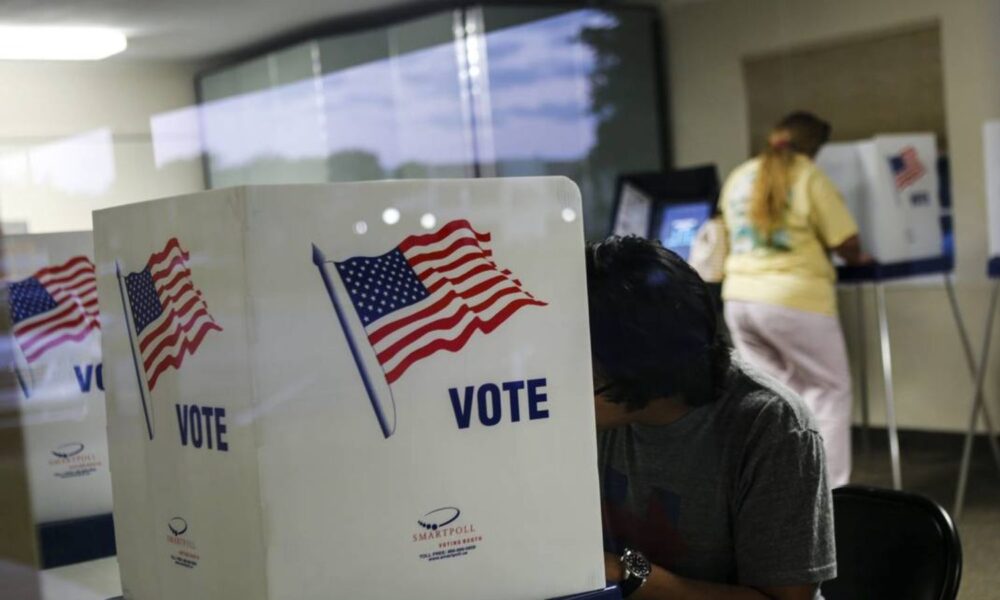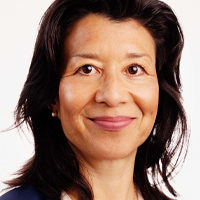Welcome to 2024! This month, I find myself shaking my head that we’re already headlong into another presidential election year. The focus and intensity of our work at USC provides one explanation for why it feels that time has flown, but behavioral science also provides a clue.
The bottom line is: here we are. And for those paying attention, it’s crystal clear that the election coming up in November has enormous implications for science and justice. Here at UCS, we know how closely scientific integrity and democracy are linked. And we’re hard at work every day, putting science and scientists at the heart of efforts to defend and advance democratic practices across the country.
I wouldn’t be surprised if, like me, you sometimes feel awed by the scale of the trials and possibilities ahead of us in this year’s contests. From the White House to Congress to state representatives and mayors, hundreds of elected officials will be on the ballot this fall. The Iowa Caucus is already behind us, with primaries around the corner in New Hampshire, Nevada, and South Carolina, and rolling out across the country in months to come.
With so much at stake, the main message I want to get across is how important it is for all of us to pay attention, to get involved, and to motivate those around us to do the same.
As a non-partisan organization, the Union of Concerned Scientists doesn’t endorse candidates. But we do an enormous amount within the bounds of our abilities as a nonpartisan 501c3: we watch elections closely for signs of interference and for anti-science claims. When we spot disinformation, we call it out. And we train others to spread truth, not lies. In these efforts and more, our decades of trusted expertise on climate change, global security, energy, agriculture, transportation, and the role of science in policymaking are helping to set the record straight.
I witnessed the scale of disinformation and its real-world impacts last year at COP28, the annual United Nations climate conference. Despite positive progress, the conference was marked by unprecedented involvement by fossil fuel companies with an interest in burying the truth and blocking efforts to fight climate change.
Here in the United States, disinformation tactics so often deployed by climate deniers are spreading, as political actors inside and outside of elected offices assault the truth for their own gains. Over the years, we’ve seen attacks on vaccines, scapegoating of the most vulnerable communities, and efforts to undermine the electoral process. And we know these tactics will escalate as the election year unfolds.
It’s appropriate to be angry at the harm spread by disinformation peddlers. I get frustrated by the greed and cynicism of special interests and politicians who know—but don’t care—that they’re being dishonest. In my experience, it’s vital to translate those frustrated feelings into action. UCS can help.
Elections matter (though they’re not the only way to engage)
There are many ways to participate in the political process, from writing a comment to a regulatory agency to attending a protest. Elections are just one tool of political action—a deeply important one. Voting is a sacred right that generations of people have fought to secure, and it’s important for every eligible voter to be able to exercise that right. Over the year, we’ll have more to say about the best evidence-based ways to protect free and fair elections, and we’ll be encouraging all of our members to participate however they can in this year’s elections, including through our Science Rising initiative, which aims to drive record STEM voter turnout this year.
Make no mistake: smart policies, based in science and evidence and aimed at advancing the public good, depend on free and fair elections and on a government that’s accountable to the people it serves. Democracy enables science. Our research shows that a healthier democracy means healthier people, and that restrictions and unfair practices that reduce democratic accountability endanger people.
But the political process doesn’t end when the votes are counted, and it doesn’t take a pause while candidates are campaigning. Over the past three years since the last presidential election, UCS and our members have been advocating for more rigorous standards in climate policies, critiquing problematic actions, calling out dangerous loopholes that will subvert progress on climate change, and pushing for more equitable and comprehensive federal programs. And throughout the year, in addition to working for fair elections and watchdogging attempts to subvert our democracy, we’ll be pushing the administration to finalize and enforce strong rules to reduce pollution, improve public health, and do its part to fight the escalating risk of climate change. We need evidence-based, systematic solutions to the challenges we face in energy, transportation, and the agriculture and food systems. We need to make sure all federal agencies are using the best available science to make their decisions, and that rulemaking processes are accessible and open to public input.
This year, we’re also going to see billions in federal funding distributed through important legislative successes like the Inflation Reduction Act and the Infrastructure Investment and Jobs Act, so we will work with community partners to make sure these funds are invested in a way that advances equity and helps us meet our climate goals. At the global level, we’re working with partners around the world to hold countries to their promises under the Paris Treaty, and making the case for a fast, fair phaseout of fossil fuels.
Idealists, pragmatists—and scientists
These changes can’t wait for the next election cycle—and we’re not going to sit on the sidelines and let deep-pocketed, selfish industries dominate the process. UCS is ready to defend our democracy, with your help.
The good news is that most people across the U.S. understand that climate change is real, it’s here now, and it’s a danger we must address. Despite the best efforts of political disinformation-peddlers and their supporters in the fossil fuel industry, the scientific truth has broken through. Extreme weather, record-setting heat, flooding, wildfire smoke, and damage to millions of homes, farms, and businesses can no longer be ignored. Climate solutions need to happen across all sectors, from individual households to the global stage: one of the most important things you can do is push candidates to address climate change in this election.
No matter the outcome of this election, we’re going to continue to advocate for science-based solutions, through regulatory agencies, Congress, and state and local government. We’re going to continue to fight bad corporate actors and political manipulation. As challenging as the days ahead may be, we cannot give in to defeatism and despair. We must move forward with a spirit of pragmatism and hope—looking with clear eyes at the present and daring to imagine a better future.

